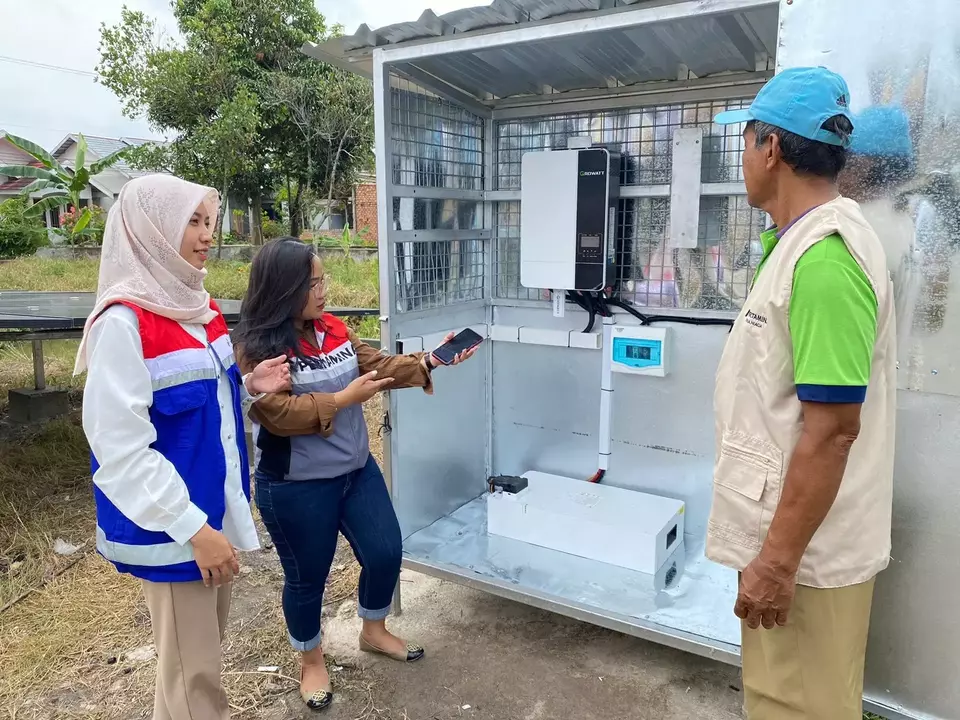IDNAround – As many as 58 villages across Indonesia are now running on renewable power generation as part of state-owned oil company Pertamina’s corporate social responsibility program.
The Desa Energi Berdikari initiative –which translates as “Independent Energy Village”– aims to bring renewable energy innovations to Indonesian villages. According to the company’s press statement, Pertamina has added 11 more villages to this program, six of which are now using solar power.
The company’s subholding Pertamina New & Renewable Energy also took part in installing solar power generation in the said villages, which include Singapure (Lahat regency), Tambakharjo (Semarang), Eka Jaya (Jambi), Tasikharjo (Tuban), Larangan (Cirebon), and Kedonganan (Badung).
“We will continue providing opportunities and expediting energy transition for the people. Among others by undertaking this Desa Energi Berdikari initiative which can spur the economy,” said Fadjar Djoko Santoso, the VP for corporate communications at Pertamina.
As a case in point, the solar panel installation in Tasikharjo has helped power local micro, small and medium enterprises (MSMEs). This includes some batik and creative economy MSMEs such as the Batik Sekar Tanjung, Jahit Sekar Tanjung, and the Ethical Creative Tasikharjo program.
Solar panels have also powered the “culinary village” Kampung Kuliner Pujasera Energi in Tambakharjo. Pertamina also installed solar panels in Kedonganan for reduce-reuse-recycle waste management sites and other economic activities. The solar panels in Eka Jaya, Larangan, and Singapure generate power for aquaponics, fishing ponds, and coffee production, to name a few.
“The renewable energy use that never runs out and environmentally-friendly, including coffee production and other business units, early childhood education centers, and health centers, to improve the quality of life of Singapure villagers,” Singapure village head Aristo Hasan said.
“This also gives us insight on renewable energy, and enables us to help the government to mitigate climate change,” Aristo said.
Pertamina first launched Desa Energi Berdikari in 2019, and the company has connected 52 villages across the archipelago to renewable energy. Pertamina reported it had helped these villages generate 170,880 wp of solar power, 605,000 m3/year of methane gas and biogas, 16,500 wp of a solar-wind power hybrid, 8,000 watts of micro hydropower, and 6,500 liters of biodiesel each year. The program has reduced 565,928 tonCo2eq/year.
The Desa Energi Berdikari to date has also delivered economic impact for 3,201 households with a multiplier effect totaling Rp 1.8 billion annually. The initiative aligns with three sustainable development goals, namely Goal 7 (access to clean and affordable energy), Goal 8 (decent work and economic growth), and Goal 13 (climate action). The company also said that such initiatives were in line with the government’s goal of reaching net zero emissions by 2060.
Also Read: Pertamina CEO Takes Home 2023 Nawacita Award
IDNAround.com has the most recent information on the most popular daily news. Please get in touch with our other social media for additional collaborations.

